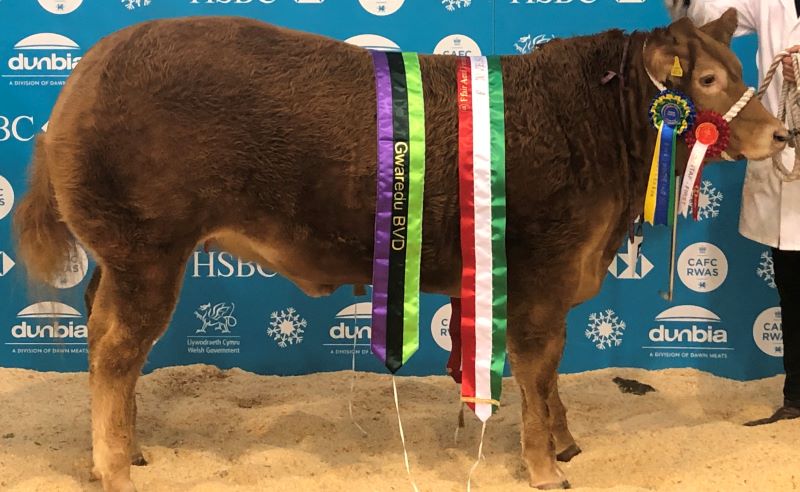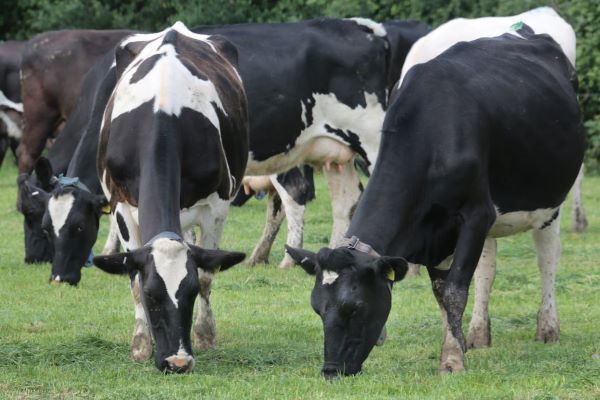RVC research supports new legislation on the eradication of BVD in Welsh cattle
Following the success of the Gwaredu Bovine Viral Diarrhoea (BVD) screening programme, which was supported by the Royal Veterinary College (RVC) amongst other industry partners, the Welsh Government has announced new legislation to aid the eradication of BVD in cattle.

BVD is a disease caused by a virus that induces immunosuppression and reproductive failure in cattle and is maintained in herds due to the presence of Persistently Infected (PI) animals. It can result in abortion, infertility, deformed calves, increased cases of calf pneumonia and poor herd health, making it a significant issue for herd health and farmers’ livelihoods. However, eradicating BVD in an area can ensure improved animal health and welfare, and improve the productivity and profitability of farms, whilst reducing their carbon footprint.
To begin progress towards eradicating BVD in Wales, the Gwaredu BVD’s Youngstock Screening programme worked in partnership with the farming industry to encourage positive behavioural change. To achieve this, the programme offered free BVD screening to determine their BVD status, and Herd Health Advice to raise awareness of BVD amongst farmers and vets and support all cattle farms in Wales to identify PI animals.
Gwaredu BVD is managed through a partnership between the RVC and Coleg Sir Gâr’s Agriculture Research Centre. The RVC’s Dr Neil Paton, Lecturer in Farm Animal Production, has worked as the Technical Director of the Gwaedu BVD providing veterinary guidance and advice on BVD eradication.
From September 2017 to December 2022, the programme screened 85 per cent (9,369) of cattle farms in Wales. The programme conducted more than 29,000 screenings in total and issued 19,282 BVD status certificates to these farms, helping increase awareness of BVD and promoting informed purchasing decisions. Overall, Gwaredu BVD identified that 27 per cent of farms screened BVD positive in 2018. In 2022, this reduced to 23 per cent, meaning 77 per cent of farms are now BVD free.

Following the success of the programme and a subsequent consultation with the farming industry, the Welsh Government has now introduced new legislation to come into effect from 1st July 2024 which will make BVD screening mandatory and work towards the eradication of BVD in Wales.
Neil Paton, Lecturer in Farm Animal Health and Production at the RVC and Technical Director of the Gwaredu BVC programme, said:
“Eradicating BVD from farms and the national herd of Wales will have significant positive benefits for animal health and welfare. I am immensely proud of the significant contributions the RVC have made towards supporting BVD control in the UK, from Professor Joe Brownlie’s work through to the enactment of BVD legislation in Wales.”
Notes to Editors
More information about Gwaredu BVD can be found here: https://bvd.ahww.cymru/en/
Reference
For media enquiries, please contact:
- Jasmin De Vivo at jasmin.devivo@plmr.co.uk or rvc@plmr.co.uk
- Press Line: 0800 368 9520
About the RVC
- The Royal Veterinary College (RVC) is the UK's largest and longest established independent veterinary school and is a Member Institution of the University of London.
- It is one of the few veterinary schools in the world that hold accreditations from the RCVS in the UK (with reciprocal recognition from the AVBC for Australasia, the VCI for Ireland and the SAVC for South Africa), the EAEVE in the EU, and the AVMA in the USA and Canada.
- The RVC is ranked as the top veterinary school in the world in the QS World University Rankings by subject, 2024.
- The RVC offers undergraduate and postgraduate programmes in veterinary medicine, veterinary nursing and biological sciences.
- The RVC is a research-led institution, with 88% of its research rated as internationally excellent or world class in the Research Excellence Framework 2021.
- The RVC provides animal owners and the veterinary profession with access to expert veterinary care and advice through its teaching hospitals and first opinion practices in London and Hertfordshire.
